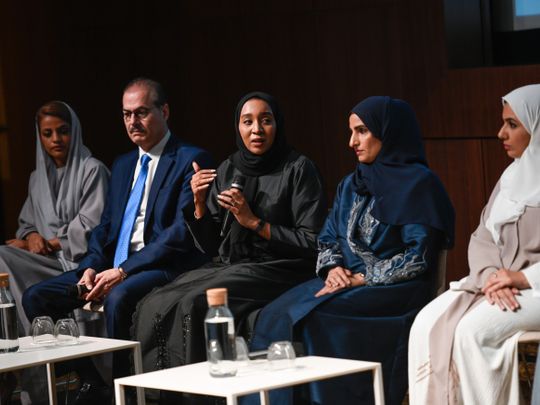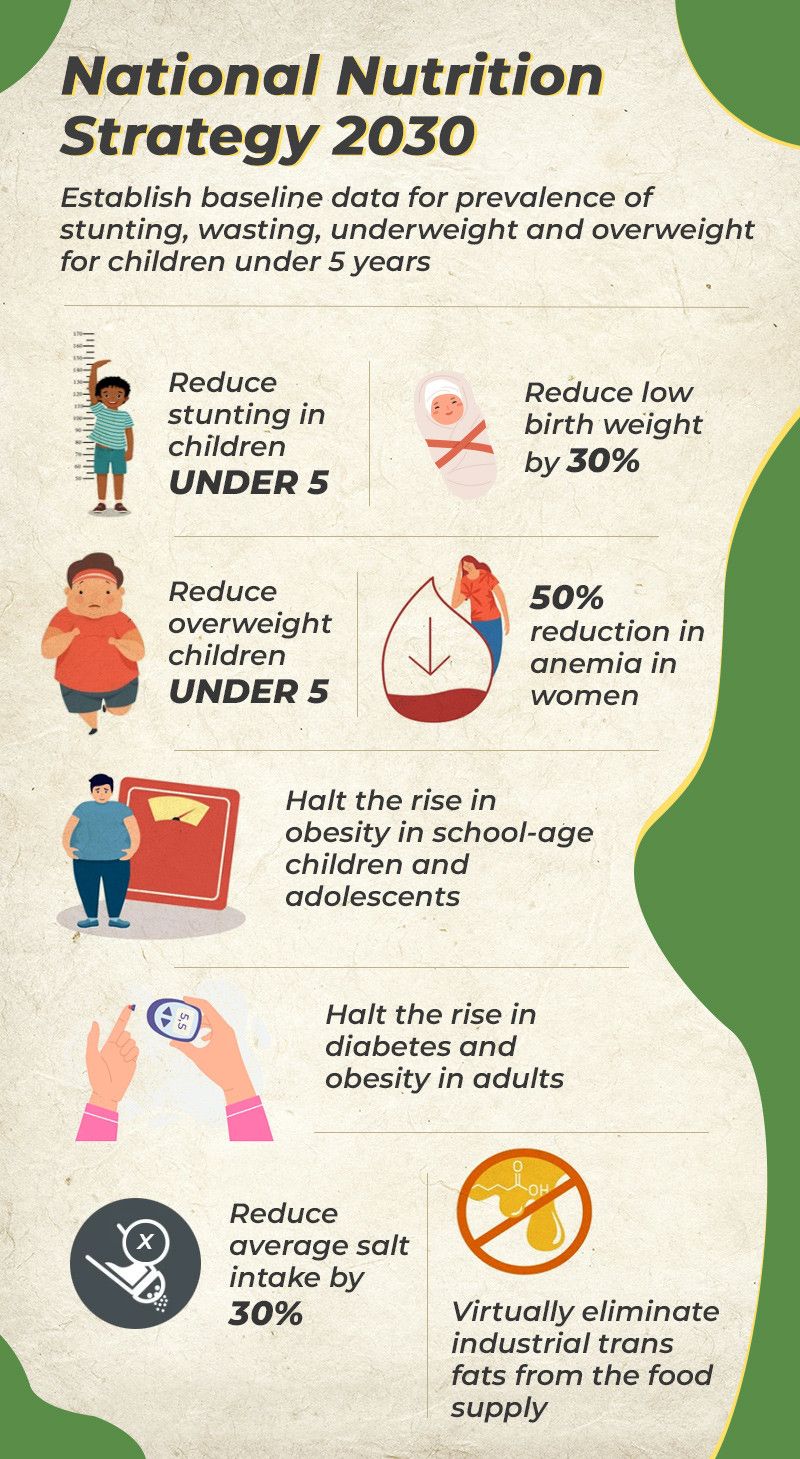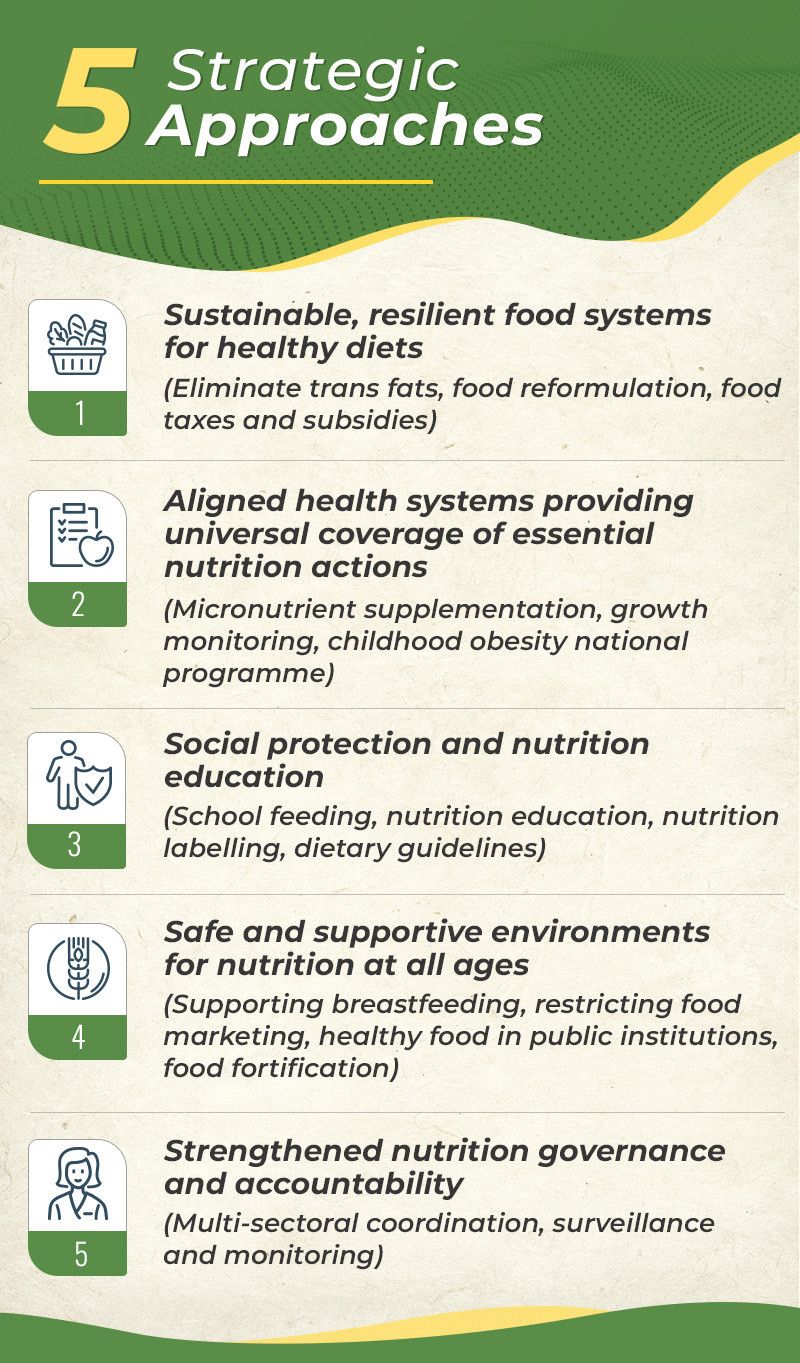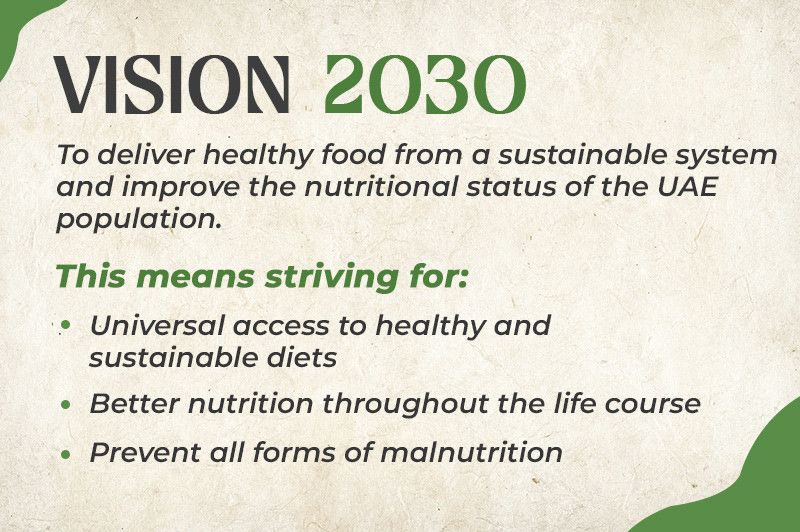
Dubai: The new nutritional strategy introduced by the UAE Ministry of Health and Prevention has decided to set deadlines for virtually eliminating trans fats and reducing salt and sugar in food products, among other plans to achieve ambitious health goals for residents.
The operational plan of the UAE’s National Nutrition Strategy for 2022-2030 - announced last week - aims to cut high rates of cardiovascular diseases and obesity among adults and malnutrition among children. Improving breastfeeding rates, and reducing prevalence of stunting and wasting among kids below five are also covered under the strategy.
The plan aims to strictly control advertisements of unhealthy foods targeting children and unify the nutrition guidelines in school canteens across the country.
Senior officials from various government entities who held a panel discussion provided details of the action plan for the newly launched strategy.

Where are we today?
The Ministry of Health and Prevention (MoHAP) presented statistics of prevalence of overweight, obesity and diet-related noncommunicable diseases that still threaten to undermine the health gains realised throughout recent decades. The figures shared by the ministry show that health and wellbeing of children continue to be undermined by malnutrition in different forms.
Nouf Khamis Al Ali, director of Health Promotion Department at MoHAP, who presented the statistics, said these facts and figures have been derived from the National Health Survey in 2018, Global School Health Survey in the UAE in 2016 and from the surveillance system of MoHAP for the year 2019.
• 51 per cent of babies born in the UAE are not benefitting from exclusive breastfeeding for their first six months
• 68 per cent of adults are affected by overweight including 28 % with obesity
• 67 per cent of adults consume more than the recommended amount of salt
• 17 per cent of children between 6-17 years old live with obesity
• 24.9 per cent of women of reproductive age have anemia
• 38 per cent of teenagers between 13-17 years old are affected by overweight
• 12 per cent of adults are affected by diabetes
• 71 per cent of adults are not doing enough physical activity
• 83 per cent of adults do not eat 5 servings of fruit and vegetables
What is the issue with trans fats?
Consumption of industrially produced trans fats is estimated to cause around 500,000 deaths per year globally due to coronary heart disease.

The World Health Organisation (WHO)’s best-practice policy recommended since 2017 is to either set mandatory limits for industrially produced trans fats to two per cent of oils and fats in all foods or ban partially hydrogenated oils (PHO).
Industrially produced trans fats are contained in hardened vegetable fats, such as margarine, and are often present in snack foods, baked foods, and fried foods. Manufacturers use them as they have a longer shelf life and are cheaper than other fats. But healthier alternatives can be used that do not affect taste or cost of food, the WHO has said.
What is the UAE doing about it?
The UAE had earlier announced a total ban on trans fats by 2023. However, officials have clarified that the current move is to follow the WHO best practices and virtually eliminate industrial trans fats from the food supply.
Basem Al Tarawneh, food standards expert at the Ministry of Industry and Advanced Technology, said a technical committee has already set the specifications for the food industry.

“One of the main specifications was to have a maximum of only five per cent trans fats in food products and it is aimed at gradual reduction,” he stated during a panel discussion.
Nouf clarified that the government would hold workshops and meetings with the food and beverage sector in February 2023 to set timelines for the reduction of trans fats as well as salt and sugar in food products.
She pointed out that manufacturers have already started reducing salt in breads as part of the efforts taken under the National Nutrition Strategy 2017-2021.
• Reduce low birth weight by 30 per cent
• Increase exclusive breastfeeding to at least 55 per cent
• Reduce overweight children under five
• Reduce anemia by 50 per cent in women
• Halt the rise in obesity in school-age children and adolescents
• Halt the rise in diabetes and obesity in adults
• Reduce average salt intake by 30 per cent
• Virtually eliminate industrial trans fats from the food supply
“We are trying to do things in a way that will not impact the businesses badly. We are also considering the taste factor. We know these ingredients are essential for keeping the taste and quality of food products,” she explained.
What will be done to ensure wellbeing of infants?
MoHAP plans to establish baseline data for prevalence of stunting, wasting, underweight and overweight for children under five years.
Shaima Qayed, acting director of Clinical Nutrition, Dubai Academic Health Corporation, highlighted that women are being encouraged to breastfeed their babies. “We are working on launching a programme for healthy raising of the young generation before school and pre-school. We are educating the women about the importance of healthy food choices.
New programmes will be launched to gather data of children below five years and to promote breastfeeding among new mothers. Micronutrient supplementation and growth monitoring will also be covered under the plans.
What steps will improve the health of students?
School students form a big segment of the population and the new Strategy aims to cut obesity and overweight among the students.
The main achievement regarding this are the guidelines for school canteens which have also set criteria to select suppliers, said Aisha Al Sairi, head of the Transitional Team for Student Welfare and Protection Department, Emirates Foundation for School Education.
“We will have an electronic system for smart canteen for students to know what they are consuming and what we need to do for promoting healthy choices. Physical activities are parts and parcel of the approach as per our national plan,” she said.
While different emirates have come up with nutrition guidelines for school canteens, Nouf said the 2030 strategy focuses on having unified nutrition guidelines in school canteens.
What about unhealthy food ads?
When talking about healthy food choices for children, officials pointed out that the new Strategy would also tackle marketing of unhealthy foods to children.
Dr Mariam Al Wahidi, director of the Community Health Department, Abu Dhabi Public Health Centre, Department of Health, said the Department is working with the Abu Dhabi Executive Office and WHO to focus on unhealthy ads especially those targeting children.
“Advertising is very easy now with online platforms. We have worked on specifications for tobacco ads and ensured that tobacco ads are controlled. We have to work on ads promoting unhealthy foods also. The plan is to start with ads focussing on children and then move on to other age categories,” she said.
Al Tarawneh pointed out that Food Safety Law has articles regulating the advertisements of food items. “We are working on the articles of the Food Safety Law in this aspect,” he said.
Meanwhile, Nouf said the MoHAP is also working on the recommendation from the WHO to have legislation to regulate the marketing of unhealthy food and beverages. She said there would be laws to regulate marketing through social media as well. “We are going to study it more at this stage to decide on the areas that we have to focus on.”
Why is the new strategy a work-in-progress?
The health and wellbeing of families, individuals and broader society continues to be a national priority and Nouf said the new strategy would be a work in progress with stakeholders from federal and local governments and the private sector. She said a lot of achievements have been made since the first National Nutrition Strategy for 2017-2021.
“We have worked, for example, on improving exclusive breastfeeding especially in the first six months of life. We have made nutrition guidelines that have been implemented in all government schools and in certain private schools. We have also done a lot of promotional and awareness programmes that aim to increase the level of knowledge and awareness among people. We have worked on different specifications, like the specification to reduce the salt in breads. We have worked on the traffic light label specification, the specification on the reduction of trans fats and a lot of other specifications and we will continue the work.”










